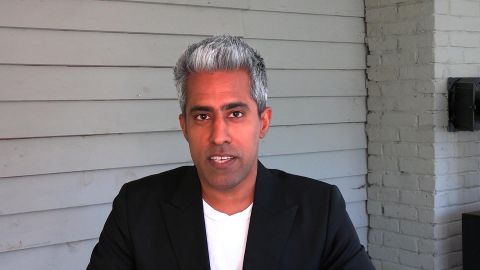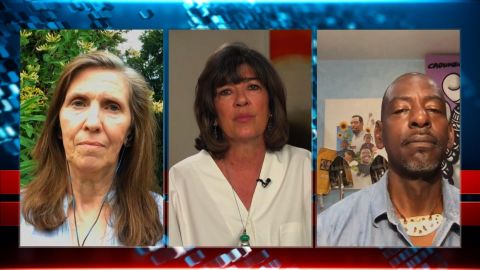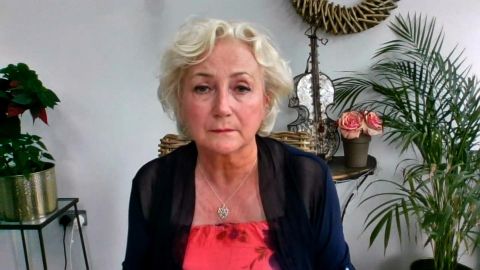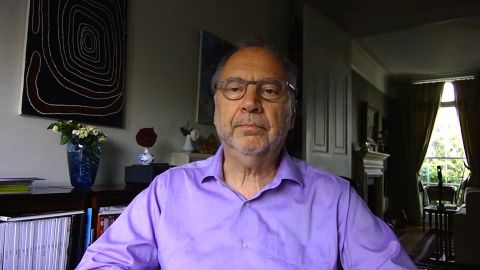Read Transcript EXPAND
CHRISTIANE AMANPOUR: You’re back. But tell me what happened. How do you think you got it? How did it affect you?
PETER PIOT, DIRECTOR, LONDON SCHOOL OF HYGIENE AND TROPICAL MEDICINE: Hello, Christiane. Good to see you again. And actually, it all started the last time that we talked on the 19th of March when I was in your program. And that day, I developed a high fever, a splitting headache, muscle pain everywhere. And particularly, a growing exhaustion. And, so that’s two months ago, and I’m still not fully recovered. As you may hear, my voice is still a bit funny, it’s hoarser, and I ended up in the hospital, where — for seven days, where I needed oxygen support. And when that was all over, I thought it was over, I developed a so-called organizing pneumonia. In other words, there was a hyperimmune reaction of my body against the virus. It was no longer the virus and that was infiltrating my lungs. And so, I suspect there will be lots of people with chronic immobility with (INAUDIBLE). And, you know, it made me what, in my native language, Dutch, what we called an experienced expert. Up to now for four decades, I have been fighting viruses from Ebola to HIV. And now I thought, OK, now a virus got me. And it was being like hit by a bus, where the virus gets into every single cell of your body. And it shows also that COVID-19 is more than — you know, lots of people get a bit of a flu and then 1 percent die and then often they say, oh, it’s only people over 70 and I’m 71 or people with underlying diseases. No, there’s a lot of people in between and a lot of people who, you know, will suffer from lung infections, from heart problems, kidney problems and so on. So, that has really — gave me new insight.
About This Episode EXPAND
Peter Piot is one of the world’s leading epidemiologists who co-discovered Ebola back in 1976. More than 40 years later, he was nearly felled by COVID-19–a gruelling experience from which he is still in recovery. He explains what he learned.
LEARN MORE



